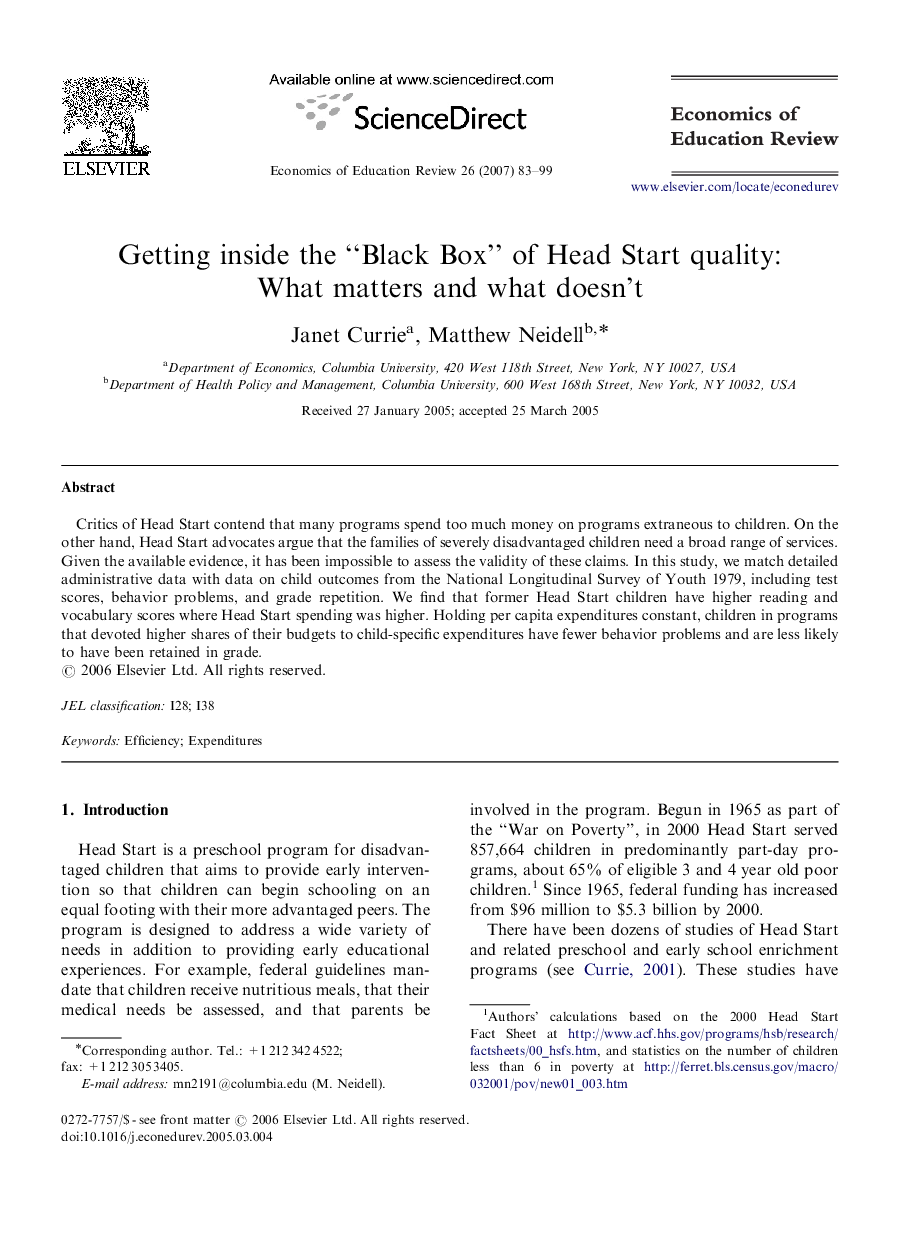| Article ID | Journal | Published Year | Pages | File Type |
|---|---|---|---|---|
| 355039 | Economics of Education Review | 2007 | 17 Pages |
Critics of Head Start contend that many programs spend too much money on programs extraneous to children. On the other hand, Head Start advocates argue that the families of severely disadvantaged children need a broad range of services. Given the available evidence, it has been impossible to assess the validity of these claims. In this study, we match detailed administrative data with data on child outcomes from the National Longitudinal Survey of Youth 1979, including test scores, behavior problems, and grade repetition. We find that former Head Start children have higher reading and vocabulary scores where Head Start spending was higher. Holding per capita expenditures constant, children in programs that devoted higher shares of their budgets to child-specific expenditures have fewer behavior problems and are less likely to have been retained in grade.
